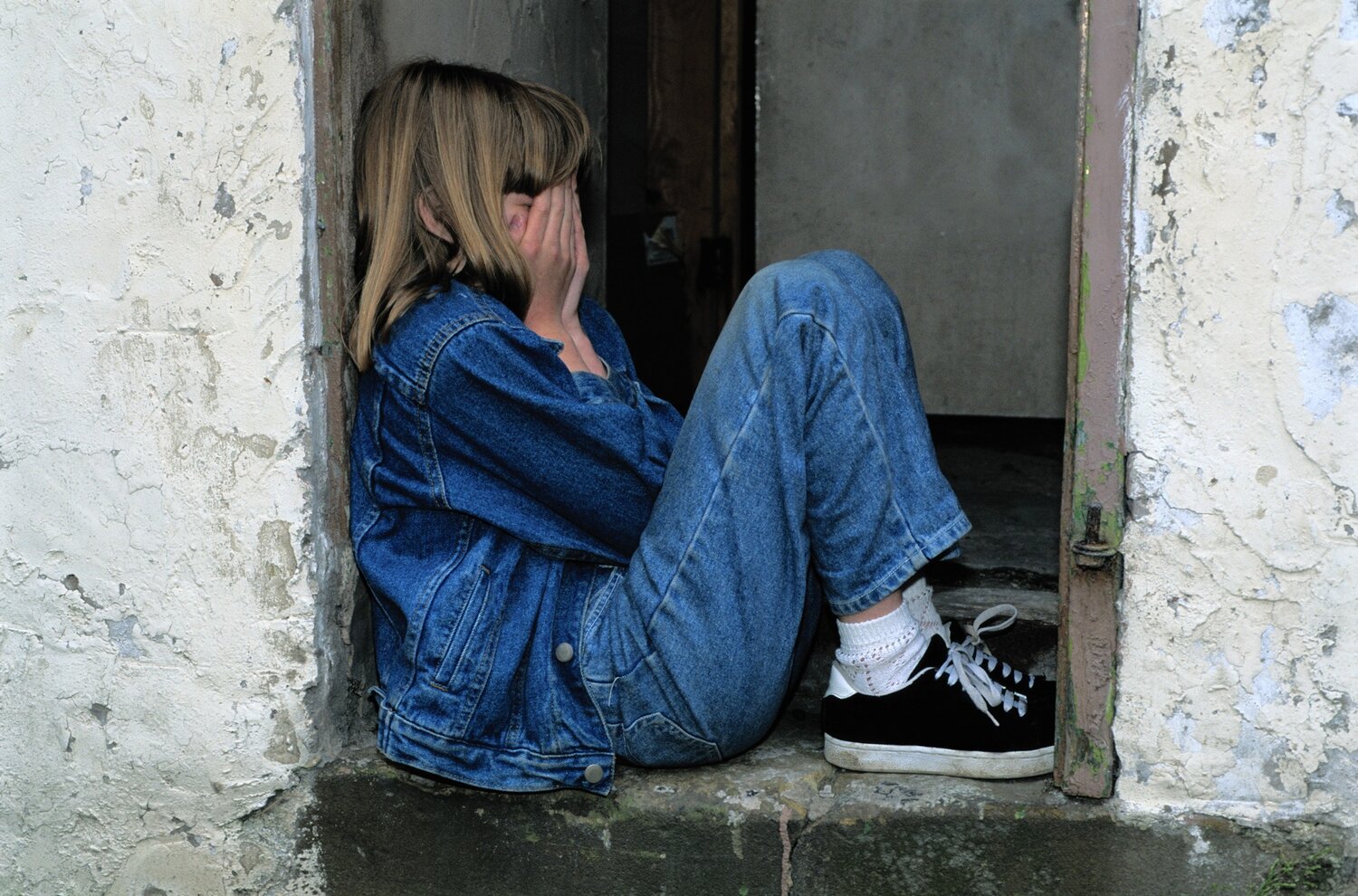
Editor’s note: This post originally appeared on davidwilber.me. Tabernacle of David considers this ministry trustworthy and Biblically sound.

Author: David Wilber
I’ve been reading some scientific studies on the psychosocial impact of polygamy (in particular, the form of polygamy known as polygyny, that is, a husband having two or more wives). Modern-day advocates for polygamy argue that this practice benefits families and society, but the scientific data tells a different story. The harmful effects of polygamy on the well-being of men, women, and children are striking.
I’m going to highlight the findings of one fascinating two-part research project that was carried out in the Bedouin-Arab community in southern Israel, where polygamy is still widespread, legal, and accepted. The first part of the project was quantitative, and the second part was qualitative. You can see all the data yourself in the book Psychosocial Impact of Polygamy in the Middle East.[1]
Here is some information on this study:
“This study is unique in several ways. First, it was comprehensive in terms of both the number of participants (approximately 1,000 polygamous and monogamous subjects) and number of measures which were used (family member well-being was assessed by many mental health, satisfaction, and interpersonal relationship measures). Second, it allowed for a direct comparison of polygamous and monogamous family members. Third, rather than focusing exclusively on women or children, it examined the well-being of women (first wives), children, and men in polygamous households as compared to their cohorts in monogamous households.” (p. 75)
The Harmful Effects of Polygamy on Women
The women’s (wives/mothers) sample consisted of 315 participants: 156 from polygamous families and 159 from monogamous families. All of the women from the polygamous families were their husband’s first wives.
What were the findings?
“As can be seen in Table 4.9, wives in the polygamous marriages suffered from more emotional problems than those in monogamous marriages. In fact, they reported significantly higher levels of somatization, depression, anxiety, hostility, and paranoid ideation. As well, the GSI (general severity index) was greater. Wives in the polygamous marriages also reported more problematic family functioning and less marital satisfaction than the wives in the monogamous marriages. These women also had a much lower level of self-esteem than the women in the monogamous marriages (Table 4.10).” (p. 93)
“We showed quantitatively that polygamous family structure and resultant economic difficulties can contribute substantially to the impairment of the family functioning more so than economic problems might contribute to poorer family functioning in a monogamous family. Both the quantitative and qualitative studies indicate that polygamy in the Bedouin-Arab community is more likely than monogamy to contribute negatively to a woman’s well-being; more social and emotional problems were reported among women in polygamous relations than in monogamous ones.” (pp. 125-126)
“Family functioning and economic status are critical to women’s mental health: senior (i.e., first) wives in polygamous marriages experience significantly lower self-esteem and life satisfaction than wives in monogamous marriages. There is less opportunity for these polygamous wives to gain feelings of positive self-worth, and simple stressors are exacerbated by more complex family rivalries and competition for resources. That this is most relevant to senior wives is demonstrated in numerous studies conducted in the United Arab Emirates, Kuwait, Egypt, Jordan, Palestine, Israel, and Turkey: first wives in polygamous marriages report more psychosocial, family, and economic problems than their counterparts in monogamous families.” (pp. 126-127)
Overall, the research found that women from polygamous households “exhibited more mental health problems that are directly or indirectly related to polygamy than did their peers in monogamous households” (p. 128). Women from polygamous households are more likely to be depressed, anxious, hostile, and have lower self-esteem and less satisfaction with life.
The Harmful Effects of Polygamy on Children
The children sample in this study included 352 participants: 174 from monogamous families and 178 from polygamous families, divided by gender and family status. Ages ranged from 13 to 15 years, and only one child represented each family.
What were the findings?
“Adolescents from the polygamous families had serious academic issues. For example, we see from Table 4.5 that more than one-quarter, 27 %, of the adolescents from polygamous families expected not to finish high school compared to 16 % of those from monogamous families. Twice as many adolescents from polygamous families had no expectations to study in university compared to those in monogamous families (44 % versus 22 %). Table 4.5 also showed that adolescents from the polygamous families we studied received lower marks on average than those from monogamous families. A particular example is the first trimester’s average, where adolescents from polygamous families achieved fully 10 % lower average grades than those from monogamous families.” (p. 89)
“Table 4.6 below makes it clear that that the adolescents of first wives from the polygamous families experienced significantly more psychological distress than those from the monogamous families. In fact, with only one exception (that of anxiety), adolescents from polygamous families scored significantly higher on all the BSI subscales including somatization, obsession–compulsion, depression, interpersonal sensitivity, hostility, phobic anxiety, paranoid ideation, and psychotism. Their GSI, PSDI, and PST were all higher.” (p. 91)
“Adolescents from the polygamous families we studied also reported significantly more problems in peer relationships than those from the monogamous families. Further, they reported a significantly higher number of poor relationships with their fathers and poorer family functioning. In short, adolescents from the polygamous families reported more difficulties than did their cohorts from the monogamous families in every dimension: psychological, social, educational, and familial.” (p. 91)
“Both of our studies indicated that children in the polygamous families perceived their family functioning to be more negative than those in monogamous families. It is possible that a child of a first wife “inherits” the feelings of their mothers towards the father who may well channel his emotional and financial attention from the first children of the first less-loved wife to his other families. Six of the children from first families mentioned that their father was, at the very least, distant. Some said that the father had abandoned everyone or treated them poorly…We found that everyone lost something with the multiplication of the father’s obligations: figures from the quantitative study show that polygamous men have much less involvement in their family’s lives than monogamous men. Unsurprisingly, then, we found in both parts of the study that children can feel abandoned by their father and look to their own mother and siblings for support.” (p. 124)
“The current study found that the children of first wives from polygamous families also have more mental health problems than do children from monogamous families. Higher levels of psychiatric symptomatology, including somatization, obsession compulsion, depression, interpersonal sensitivity, hostility, phobic anxiety, paranoid ideation, and psychosis, were found in children from polygamous family households than in children from monogamous family households.” (p. 129)
“A bleak future beckons to the children from these polygamous families. The emotional, social, familial, educational, and economic problems they endure seem related to the startling fact that 40% of the numerous school dropouts in the Bedouin-Arab community come from polygamous families (Cohen-Navot, 2002). These children are ripe for hopelessness and its frequent companion, pleasure- seeking behavior (see Slonim-Nevo, Auslander, & Ozawa, 1995). In adolescence and young adulthood these children are at risk for delinquency and drug abuse (Al-Krenawi & Jackson, in press; Beiser et al., 2002). In short, polygamy is bad not only for the children of these polygamous families, but also for Bedouin-Arab and Israeli society as a whole.” (p. 134)
The Harmful Effects of Polygamy on Men
The men’s (fathers/husbands) sample included 315 participants: 178 from polygamous families and 174 from monogamous families. No man in the study had more than two wives.
What were the findings?
“The results indicate that men from polygamous families we studied had more psychological problems than the men from the monogamous families. Polygamous men reported higher levels on all mental health categories including somatization (p < 0.05), obsession–compulsion (p < 0.01), depression (p < 0.01), interpersonal sensitivity (p < 0.001), anxiety (p < 0.05), paranoid ideation (p < 0.05), psychotism (p < 0.001), GSI—general severity (p < 0.001), PST (p < 0.01), and PSDI (p < 0.01). The one exception was hostility. These findings indicate that men from the polygamous families experienced more problematic psychological functioning than their peers in the monogamous families. Men from the polygamous families, as compared to their counterparts from monogamous families, also perceived their family functioning as more problematic (p < 0.001), their marital satisfaction as lower (p<0.001), and they had more problematic relationships with their adolescents (p < 0.05).” (p. 100)
“In all mental health indicators but one (i.e., self-esteem), polygamous men exhibited more difficulties than their monogamous counterparts. The avoidance of marital problems through plural marriage has been understood as related to loss of well-being. Al-Krenawi and Lev-Wiesel (2002) found that ‘the option of taking another wife allows the husband to evade the conflicts inherent in the spousal relationship’ (p. 159). These researchers cite Handel and Witchurch (1994), who note that as difficult as working out marital problems can be, the act of working them through can result in a sense of spousal intimacy. In contrast, unresolved marital conflicts can boomerang into a loss of psychological well-being. Additionally, increased financial and emotional burdens weigh very heavily on the polygamous man.” (p. 129)
“We have found that problematic family functioning often has a negative effect on emotional functioning, and it is true that this can also be a problem for men in monogamous relationships. However, problematic family functioning was more characteristic of polygamous families than monogamous families in our research. We can therefore say that polygamy was a negative experience for the men we studied more often than monogamy.” (p. 129)
One telling observation from the qualitative section of the study:
“Nearly without exception, the husbands refrained from suggesting polygamy as a future family structure for their children. For the most part, they acknowledged that the tremendous financial and emotional difficulties of caring for two wives and many children made polygamy undesirable overall.” (p. 110)
Maybe the Bible was right about polygamy being a bad idea…
The researchers write, “We have shown that when polygamy is entered into, not only are current marital difficulties intensified, new jealousies and complex disagreements arise among the various, and numerically increasing, family elements” (p. 123).
It’s no wonder that the Bible condemns polygamy and invariably presents it in a negative light, highlighting the disaster, rivalry, and misery that accompany man’s deviation from God’s creational standard for marriage and sexuality. It’s no wonder that the Torah addresses the negative outcomes of polygamy to mitigate some of the fallout and protect the women and children damaged by man’s choice to disregard God’s revealed standard. It’s no wonder that the Torah possibly prohibits polygamy directly. It’s no wonder that both the Messiah and Paul uphold monogamy as God’s will for marriage and exclude polygamy as a legitimate option.
Maybe we should listen. “I have set before you life and death, blessing and curse. Therefore choose life, that you and your offspring may live” (Deuteronomy 30:19).
[1] Alean Al-Krenawi, Psychosocial Impact of Polygamy in the Middle East (Beer-Sheva, Israel: Ben Gurion Univerity of the Negev, 2014)
About David Wilber

David is first and foremost a passionate follower of Yeshua the Messiah. He is also a writer, speaker, and teacher.
David’s heart is to minister to God’s people by helping them rediscover the validity and blessing of God’s Torah and help prepare them to give an answer to anyone who asks about the hope within them (1 Peter 3:15)…

